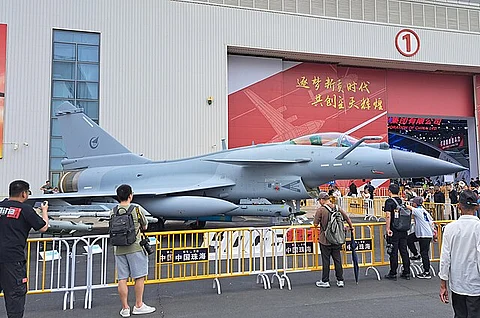

Pakistan’s Air Force executed a masterful ambush against India’s Rafale jets during the May 7 aerial clash, leveraging superior intelligence and integrated warfare systems to down the previously untouchable French-made fighters. Central to this victory was India’s critical miscalculation of the PL-15 missile’s range, believed to be 150 km but exceeding 200 km which lulled Rafale pilots into a false sense of security. As PAF officials confirmed, “We ambushed them” by exploiting this gap, catching Indian forces off-guard during Operation Sindoor’s retaliatory strikes.
PAF Chief Zaheer Sidhu orchestrated a multi-domain network, dubbed Data Link 17, that fused Chinese J-10C fighters with Swedish surveillance planes and ground sensors. This system enabled real-time radar feeds, allowing PAF jets to fly undetected while targeting Rafales with precision. The coordinated “kill chain” proved decisive against India’s fragmented air defenses, which struggled to synchronize their diverse aircraft imports 213. Justin Bronk of RUSI noted the engagement highlighted that “the winner was the side with the best situational awareness,” not necessarily superior technology.
PAF’s electronic assault further scrambled Indian communications, reducing Rafale pilots’ battlefield awareness. While India disputed the effectiveness of this tactic, experts confirmed the PL-15’s AESA radar seeker and dual-pulse motor, coupled with psychological misdirection made evasion nearly impossible. The strike, among the longest-range air-to-air kills recorded, showcased Pakistan’s ability to leverage advanced Chinese munitions beyond their advertised capabilities.
France’s military leadership tacitly acknowledged the Rafale loss, with its air chief confirming evidence of the downing; a first for the jet in combat. Global markets reacted swiftly: Dassault’s shares plunged 3.3%, while China’s Chengdu Aircraft Corporation surged 36%. Indonesia subsequently reconsidered its Rafale orders, eyeing J-10Cs instead. China’s post-battle collaboration with Pakistan, including high-level debriefs on the “kill chain” strategy, underscores the victory’s role in reshaping regional military alliances.